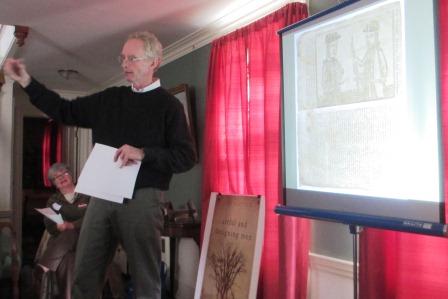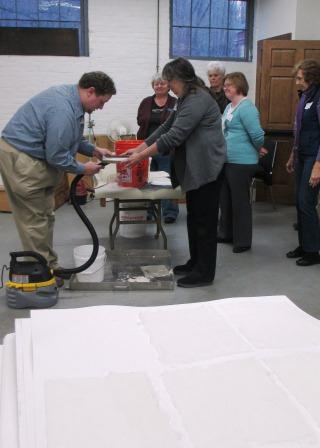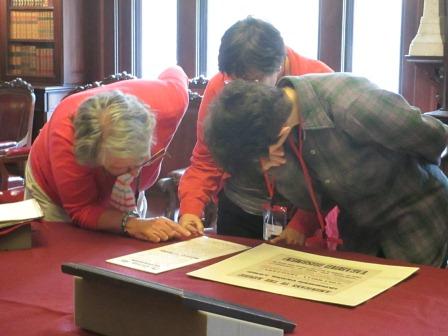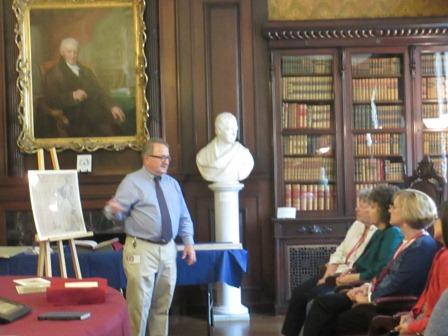By Kathleen Barker, Public Programs & Education
Are you an educator looking for a relaxing and rewarding summer professional development opportunity? Consider applying for a Swensrud Teacher Fellowship! Perhaps you don’t have much time to devote to research this summer, but you have a student (or a few) who would love to do some original research. We have a fellowship for them, too!
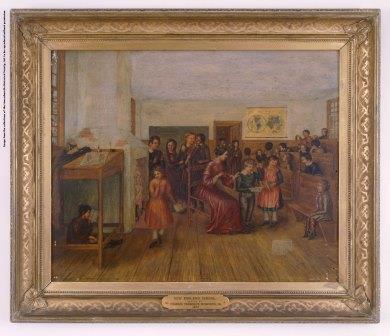
New England School by Charles Frederick Bosworth (c.1852). Massachusetts Historical Society
Each year the MHS offers at least three fellowships to K-12 educators. Applications are welcome from any candidate (living anywhere in the United States) who is interested in developing an engaging series of lessons using documents and artifacts from the Society’s collections. Each fellow receives a $4,000 stipend in exchange for approximately 4 weeks of research and writing. Our 2016 teacher fellows investigated topics including the coming of the American Revolution in Boston, Bostonians’ experiences in World War I, and the Transcendentalist movement and the creation of Brook Farm. Other fellows explored the role of women in the abolitionist movement and how Boston’s abolitionist movement influenced ideas about Black identity and racial equality. Throughout 2017, we will be adding these (and more) curriculum units to our website, so visit our education pages frequently. (http://www.masshist.org/2012/education/lessonplans)
Our Winthrop Student Fellowship encourages budding historians to engage with primary sources to write a paper, create a website, or design an exhibit … whatever piques the student’s interest. Prior to applying, a student should consult with his or her teacher to agree upon an appropriate topic and product. This year’s Winthrop Fellows were a group of students from Stoneham (Mass.) High School. They created an exhibition for National History Day on the Boston Post Road, and described their research experiences in a recent blog post. (http://www.masshist.org/blog/index.php?series=46) Both the teacher and the student(s) receive a stipend upon completion of the fellowship, as well as an opportunity to attend a behind-the-scenes tour of MHS.
Applications for teacher and students fellowships must be postmarked no later than February 16, 2017. Learn more about application requirements, suggested topics, and other guidelines on our website (http://www.masshist.org/education/fellowships), or contact education staff members for more information (education@masshist.org).


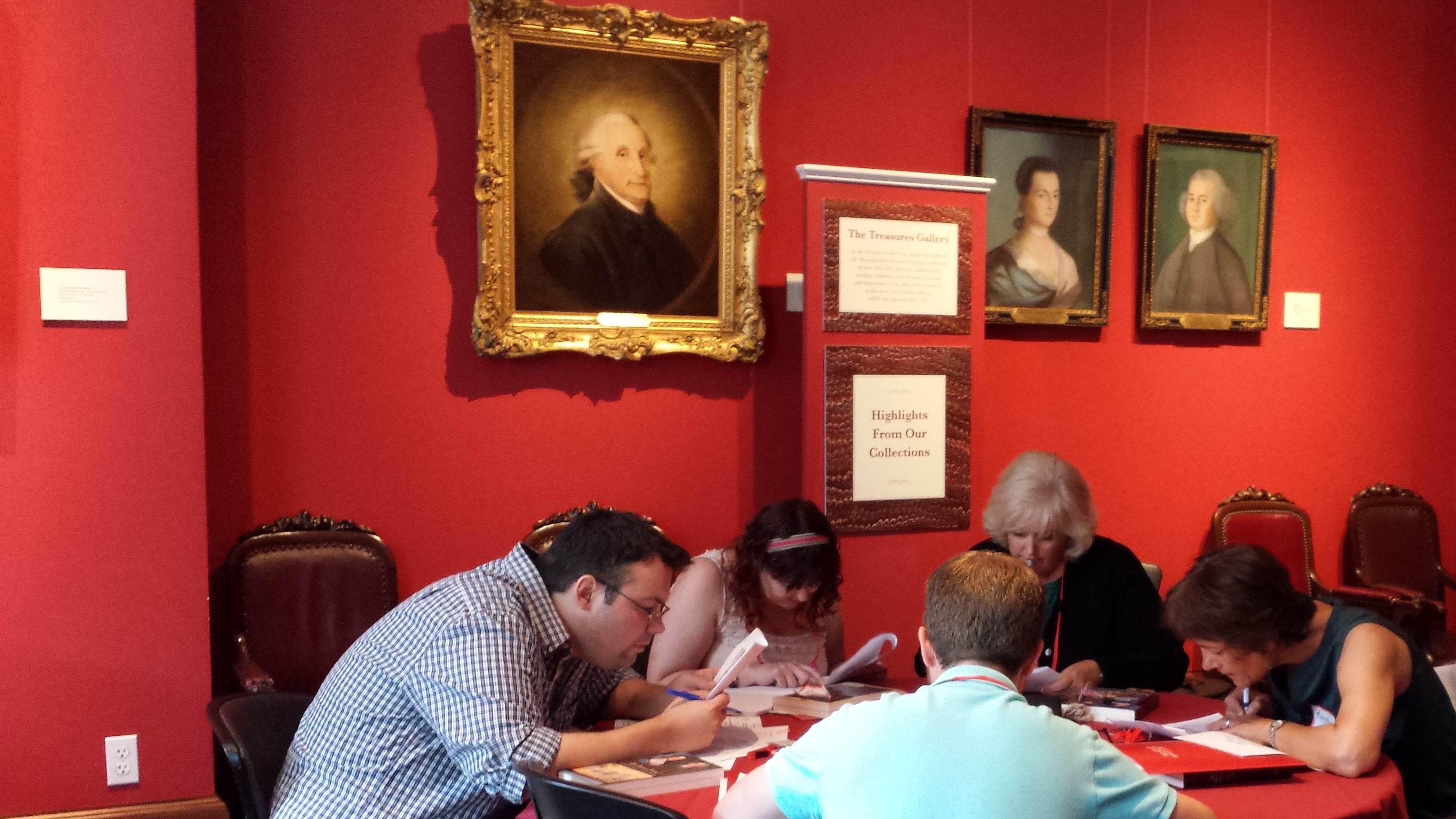

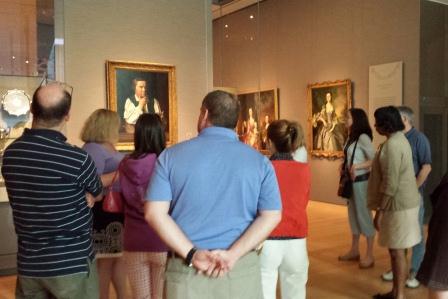 July brought new partnerships and new friends to the MHS. July 10-11, MHS education staff co-hosted a workshop with the Museum of Fine Arts to celebrate their special exhibition
July brought new partnerships and new friends to the MHS. July 10-11, MHS education staff co-hosted a workshop with the Museum of Fine Arts to celebrate their special exhibition 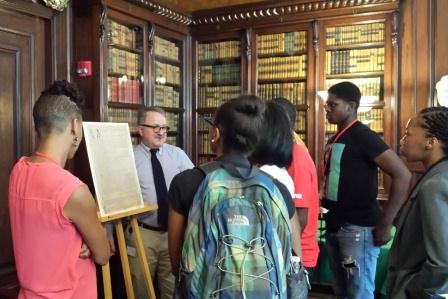 This month also featured a visit from MYTOWN students researching the American Revolution in the Boston area. MYTOWN is a great organization that engages students in the learning and teaching of their local history. These particular student viewed documents from the period pertaining to the Revolution in general (like the Declaration of Independence), as well as materials related specifically to the Dillaway Thomas House in Roxbury. They even
This month also featured a visit from MYTOWN students researching the American Revolution in the Boston area. MYTOWN is a great organization that engages students in the learning and teaching of their local history. These particular student viewed documents from the period pertaining to the Revolution in general (like the Declaration of Independence), as well as materials related specifically to the Dillaway Thomas House in Roxbury. They even 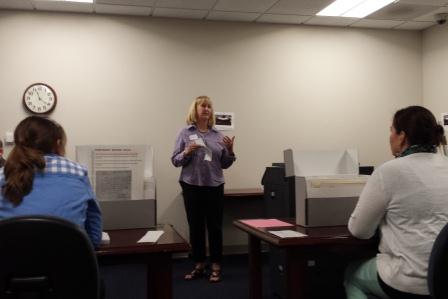 I spent the week of July 18 working with a fun group of educators participating in the Primarily Teaching program at the National Archives in Waltham. Together we researched Boston school desegregation, in particular the records pertaining to Morgan v. Hennigan, the case that prompted Boston Public Schools to adopt busing in order to reverse segregation in its schools and facilities. By the end of the week, I had worked with my counterpart at the Archives, Annie Davis, to develop a new workshop on the changing meanings of equality in education over the last two and a half centuries. (Look for it on our program schedule in 2015.)
I spent the week of July 18 working with a fun group of educators participating in the Primarily Teaching program at the National Archives in Waltham. Together we researched Boston school desegregation, in particular the records pertaining to Morgan v. Hennigan, the case that prompted Boston Public Schools to adopt busing in order to reverse segregation in its schools and facilities. By the end of the week, I had worked with my counterpart at the Archives, Annie Davis, to develop a new workshop on the changing meanings of equality in education over the last two and a half centuries. (Look for it on our program schedule in 2015.)